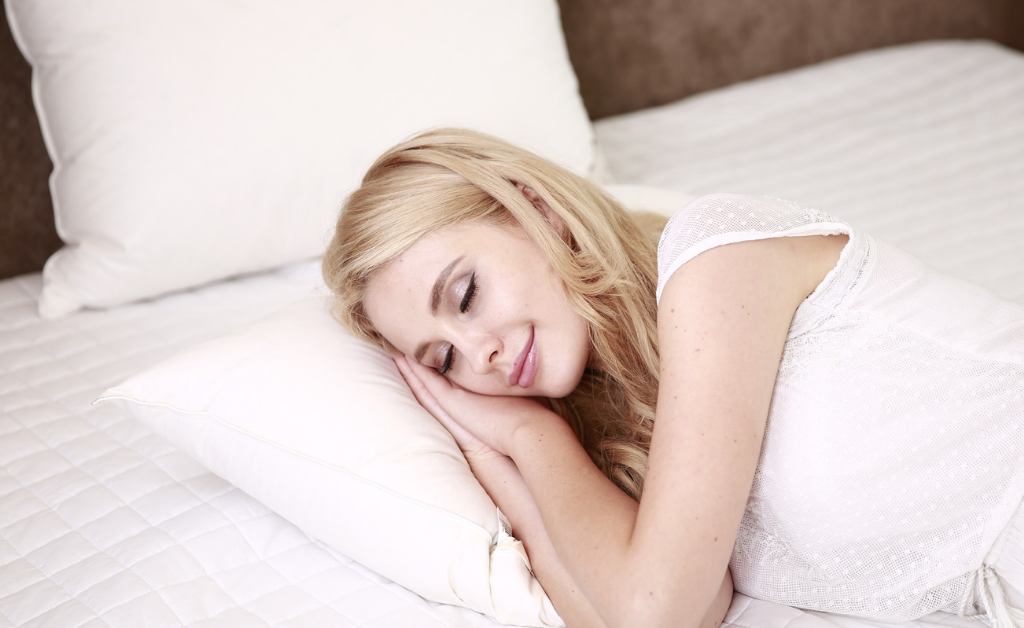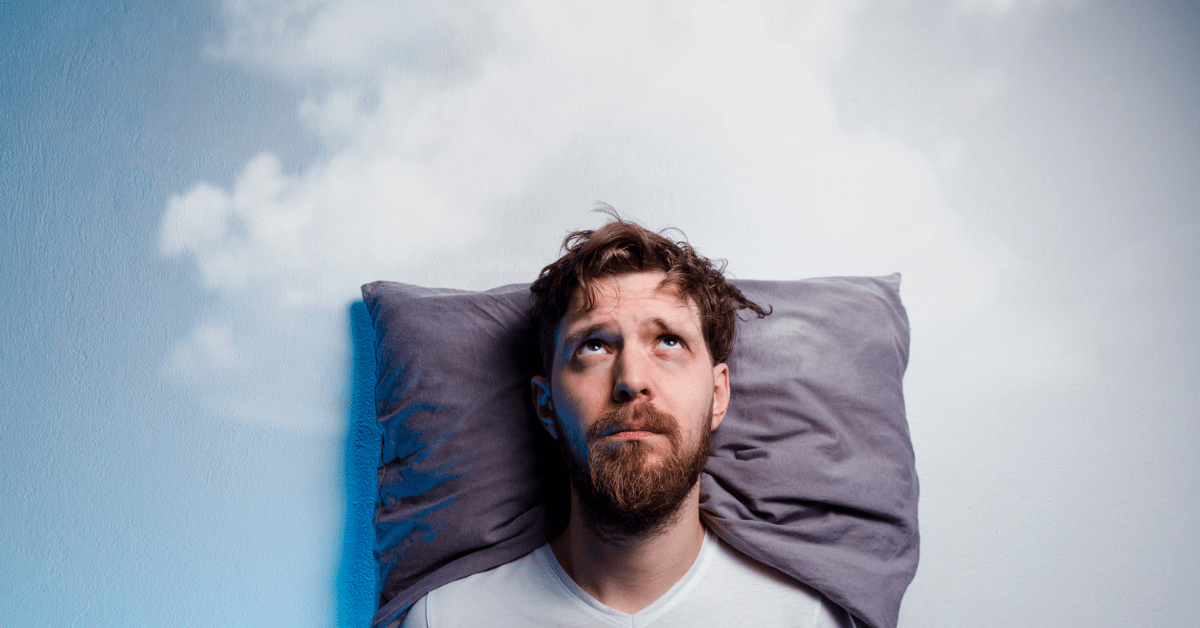Getting enough sleep is vital for your health, but unfortunately, it is also something that a lot of people struggle with. There are a whole host of things that can affect a person’s ability to fall asleep and stay asleep for the night. Luckily, most of these factors are easily remedied by a few lifestyle changes, which is why we have put together the following list. If sleep seems to continually elude you or if you tend to struggle with staying asleep, you aren’t alone, and you can do something about it. Let’s dive in.
The Importance of Sleep
Most adults need at least seven hours of sleep in order to function properly. Sleep deprivation can have serious effects on your health both mentally and physically. It has been linked to attention deficits, reduced cognition, slower reactions times and mood swings. A prolonged lack of sleep has also been linked to obesity, strokes, heart disease, diabetes and high blood pressure.
Sleeping well allows your body to rest and repair itself from the previous day’s activities. As a result, you are better equipped to handle the demands of your daily life. When you have had enough sleep, your brain and your body are functioning properly in optimum conditions. It helps to restore and maintain the balance that your body relies on.

Bodily Temperature
Most people think that their bedroom should be warm and cosy. But in doing so, you could be comprising the quality of your sleep. If you are too warm in bed, then you are going to struggle to enter and complete your REM sleep cycle. Your room should be on the cooler side. This doesn’t mean that you should be overcompensating with duvets and blankets. A lower overall body temperature can actually help your body to thermoregulate, prompting your circadian rhythm, allowing you to fall asleep more quickly and stay asleep for longer.
Daily Stressors
Unfortunately, stress is an unavoidable aspect of modern life. Stress is thrown at you from all angles, both personally and professionally. Taking too much of this stress to heart can disrupt your sleeping pattern. It is not uncommon for people to stay awake at night worrying about a hundred different things. Managing stress can help you to sleep better. You need to compartmentalise, do not take your stressors to bed with you. Practice meditation techniques before bed and make an effort to wind down and relax before bed.
Alcohol Consumption
Speaking of unwinding, a lot of people choose to have a beer or a glass of wine to unwind in the evening. While there is nothing wrong with having a glass or two, and in some cases, it has been known to encourage feelings of drowsiness. However, drinking too much, too often or too closely to your bedtime can actually be detrimental. The truth is that it can help you to fall asleep it is also a stimulant which means that you are more likely to have your sleep disrupted, waking up more frequently and struggling to fall back to sleep. So try to limit your intake overall and avoid drinking too closely to bedtime.
Nicotine Addiction/Smoking Cessation
Smoking is a common habit, as are attempts to quit. The trouble is that nicotine is addictive, and it acts as a stimulant, as does alcohol. When you smoke, the nicotine in your system can stimulate your brain, making it more difficult for you to fall asleep. Most people would think that quitting smoking would solve this problem, but it is not that simple. Quitting smoking can cause anxiety, and the withdrawal of nicotine from the brain can also affect your brain and keep you awake. Realistically the best thing that you can do when quitting is to substitute your nicotine source with a healthier one and wean yourself off slowly in order to avoid the effects of withdrawal.

Excess Caffeine
Next on the list of stimulants that can affect your sleep is caffeine. It is present in a number of substances, most notably coffee. If you consume too much caffeine too closely to bedtime, then your sleep will be affected. This is because your heart rate is elevated, which makes you feel more restless. You may also experience stomach cramps which are obviously uncomfortable and can keep you awake. Lastly, your sleep may also be disturbed by the frequent urge to urinate. This is easily avoided by limiting your caffeine intake.
Your Diet
The things that you eat can affect your sleep, but the time that you eat can affect your sleep more so. A late dinner is sometimes necessary, and a late-night snack is often a special treat, but when your overall calorie and fat consumption spikes in the evening, it can lay heavy on your stomach. This then makes you feel uncomfortable, making it more difficult to fall asleep. More than simply being uncomfortable, once you do fall asleep, it can be far more difficult to reach REM sleep which is vital for the quality of your sleep. Therefore, you should avoid consuming too many calories too late in the day, especially just before you go to bed.
Mental Health Disorders
The link between your mental health and your sleep is almost cyclical. Bad sleep can affect your mental health, and mental health disorders can affect your sleep. Anxiety and depression specifically can interrupt your sleep pattern. Unfortunately, this is much harder to rectify. Some people benefit from implementing a routine, a specific time they go to sleep and wake up each day to promote consistency. However, this will not work for everyone. Sometimes, medical intervention is necessary; if your mental health is suffering, you should speak to your doctor for some help.
Blue Lights
It is normal for people to have a television in their bedroom that they watch before bed. Their phones are often the last thing that they see at night and the first thing that they see every morning. However, the blue light emitted by these electronic devices can have a significant effect on your circadian rhythm. It stimulates your brain, making it harder to sleep. Instead of spending too much time looking at screens before bed, try reading or relaxing in another way. Most phones also come with a blue light filter as an in-built feature that you can utilise. There are also blue light blocking glasses which may help too.
Taking Naps
The final thing that could be affecting your sleep is taking naps. A lot of people rely on naps to get them through the day. However, naps are really only of value to children.
Waking up from a nap is exceptionally difficult. It often leaves you feeling sluggish for the rest of the day. It also throws off your body’s natural rhythm making sleeping at night more difficult.
Summing Up
Sleep is integral to having a happy and healthy life, yet it is often overlooked and even compromised as responsibilities mount. Other things take precedent, and a lot of people don’t even notice that their lifestyle choices are contributing to their sleeping problems. By increasing your knowledge on the issues that may be affecting your sleep, you are taking the first steps to combat them. Remember, adults need between seven and nine hours of sleep a night. Once you start sleeping consistently better, you might be surprised by the transformative effect that it can have on your life.






